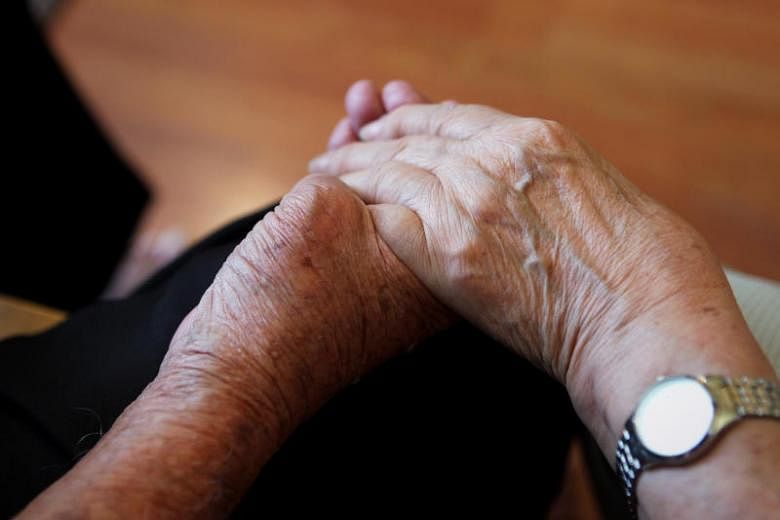NEW YORK • Get a grip on your health.
People have long judged each other for the firmness of a handshake. A strong grip generally conveys confidence or even power.
But recent studies indicate that grip strength can serve as a window into how healthy you are.
As you age, experts say, your grip strength can be a measure for how likely you are to develop and survive diseases such as cancer, heart disease and more.
A 2016 review of studies involving people 60 and older found that grip strength "has a predictive validity for decline in cognition, mobility, functional status and mortality".
Experts say handgrip strength works as a stand-in for measuring general body strength and muscle mass, which declines with age.
The advantage of measuring grip strength is that it is affordable and convenient.
"It's not a perfect measure of overall muscle strength, but a good one" since loss of muscle mass is tied to many diseases, Mr Stuart Gray, a lecturer in exercise and metabolic health at University of Glasgow, said.
To measure grip strength, researchers use a simple device called a dynamometer.
Subjects squeeze it to reveal the amount of force applied.
"It takes five to 10 minutes to train someone to use the device," Mr Gray said, "so it's an easy application."
He was one of the co-authors of a study last year that found handgrip strength is "strongly associated with a wide range of adverse health outcomes".
The research found an association between lower grip strength and a higher incidence of cardiovascular disease, chronic obstructive pulmonary disease and various types of cancer, including colorectal, lung and breast.
Muscle strength is an indicator of "your ability to withstand diseases", said Dr Darryl Leong, a cardiologist with the Population Health Research Institute at Hamilton Health Sciences and McMaster University in Canada.
"When you are stronger and you become ill, you have reserves that you can draw on to help fight the disease. Without muscle strength, your odds are significantly poorer."
He added that becoming frail is often considered an inevitable part of ageing.
With this research, he said, "we challenge this belief because we have observed many younger adults who are frail and many older adults who are not".
He is leading an ongoing study of about 142,000 people in 17 countries that uses their grip strength to evaluate the likelihood of heart attack, stroke or death from cardiovascular disease.
"Our research indicated that low muscle strength is associated with a higher risk of dying, first and foremost," he said.
It also found that "grip strength was a stronger predictor of all-cause and cardiovascular mortality than systolic blood pressure".
Dr Leong's research suggests for each 11-pound (4.9kg) decrease in grip strength, there is a 16 per cent higher risk of dying from any cause, a 9 per cent greater risk of stroke and a 7 per cent higher risk of heart attack.
WASHINGTON POST

